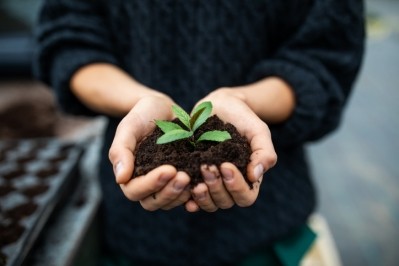Ribena owner launches ‘bold’ regenerative farming project at UK blackcurrant farm

The move comes amid rising interest in regenerative practices among the agri-food industry as a potential solution to problems associated with agriculture such as ecosystem degradation and biodiversity loss, water user and climate change.
SBF GB&I said the project – to take place across much of the 60 hectares of blackcurrant production at Gorgate Farm in Norfolk, where is has been growing blackcurrants for Ribena since the 1950s – forms part of its overall ambition to support crop resilience, reduce carbon emissions from its supply chain, and improve soil health to allow natural processes to support blackcurrant production without so much intervention.
The Suntory Group as a whole is targeting a 30% reduction in scope 3 CO2 emissions by 2030 from its supply chain versus 2019 levels. The Japanese multinational, best known for its whisky and whose products are sold in over 30 countries, has a longer-term target of net zero carbon emissions by 2050.
Although a universal definition does not exist, regenerative agricultural practices generally aim to improve soil health, enhance water infiltration and storage, increase the resilience of farms, and reduce reliance on chemical inputs.
The Suntory Group project will focus on minimising external inputs while improving soil health, plant nutrition and environmental protection through:
- Sap sampling to better understand and optimise blackcurrant plant nutrition – the theory being macro and micro-nutrient imbalances affect plant resilience and attack by pests and diseases
- Utilisation of novel and organic inputs (both fertiliser and crop protection) to replace conventional inputs
- Creation of diverse alleyway swards to feed the soil, increase carbon and
- Improvements to soil health and carbon sequestration through the utilisation of compost extracts to restore soil microbiology
The pilot project launched in April 2023, backed by investment from Suntory Holdings Limited for at least three years. The size of the investment is commercially confidential.
Rosie Begg, a second-generation blackcurrant farmer, will lead the project alongside SBF GB&I’s agronomist, Harriet Prosser, in collaboration with the University of East Anglia, Suntory Holdings Limited, and Soil Ecology Laboratory.
“Challenging climatic and economic conditions over the past few growing seasons have inspired me to investigate and start to adopt regenerative farming practices that will allow us to grow sustainably as well as reduce greenhouse gas emissions,” said Begg.
“Soil truly is the most important and essential ecosystem; it’s linked to every function on the planet. The aim is by focusing on soil biology restoration, we can allow natural processes to support blackcurrant production without so much intervention, benefiting both the environment and blackcurrants we grow substantially.”
Harriet Prosser added the project represents ‘a real shift away from more conventional practices’. “The principles are backed by credible science but have yet to be commercially tested in more mainstream perennial fruit systems. The aim is to produce quality data that will enable us to scale up these principals to the wider industry. We’re not just tackling greenhouse gas emissions, we’re looking to increase the amount of life, in our soil, in turn improving soil health and fertility which benefits the blackcurrant itself.
“This trial is part of a global regenerative agriculture initiative led by Suntory Holdings Limited and draws on expertise from industry and academia. It aims to facilitate healthy plant growth and re-establish a more natural soil food web. This is an ambitious project - we want to do this important work while maintaining a commercial yield of high quality juicy British blackcurrants that will go into making Ribena for the next 85 years.”

The project will use the Cool Farm Tool – a popular carbon calculator for farms – to quantify the on-farm greenhouse gas emissions and soil carbon sequestration. This will ensure accurate and consistent carbon reporting, we were told. The wider results it is hoped will be reported via peer-reviewed scientific papers charting the project’s findings.
Harriet Prosser stressed that the project is in its very early stages.
“As this is such a novel project in the commercial horticulture sector, we are taking our time in this first year to establish baselines on carbon, blackcurrant nutrition, and crop protection requirements in order to inform actions in subsequent years under a more regenerative regime,” she told FoodNavigator.
“Our aim is to produce robust, compelling evidence within this pilot project first which will help overcome future roadblocks,” she said. “What’s being piloted is brave and different, and challenges convention, so as the project develops and our understanding grows, we will be hosting demonstration events and disseminating the findings to the wider grower group to enable and support scaling up.”
In each of the trial plantations the project leads will be comparing three key approaches: conventional practice i.e. how commercial blackcurrants are grown today; transitional practise i.e. using no inorganic inputs, reactive treatments, and novel alleyway management; and the Soil Food Web approach, prescribed by renowned soil biologist Dr Elaine Ingham and which features a reliance on using compost extracts.
“Primarily we will be looking to significantly reduce the use of inorganic fertiliser and plant protection products,” explained Prosser. “Fertiliser alone accounted for 55% of the 2021 blackcurrant carbon footprint. In place of inorganic fertiliser, we will be utilising organic fertilisers and composts, as well as managing the alleyways to grow and produce a diverse sward of herbage which can support crop nutrition, soil organic matter, and strengthen soil biodiversity. In the Soil Food Web areas, we will be actively applying soil ecology in the form of compost extracts.”

The project hopes to enable SBF GB&I to scale up these principals to the wider industry. Roadblocks exist, however, for the regenerative agriculture market as a whole. There remains limited knowledge on best practices and concepts. Production costs are a challenge too.
“We plan to fully cost out all our approaches to determine this as the project progresses,” Prosser told us. “Looking at it at this early stage there will be additional cost upfront with the need for new equipment and detailed soil and plant analysis but also large potential savings particularly as the cost of inorganic inputs are so high. Maintaining or hopefully improving yield and quality through the transition is key.
“In terms of expertise, we have a fantastic team in the project with experts from the University of East Anglia and Soil Ecology Laboratory. The hope is to be able to support these principles more widely across our contracted farms over the next 3 to 4 years of the project using these experts and our in-house agronomist whose main objective is to share best-practice, support production, and secure the UK supply of blackcurrants to Ribena."
'Creating a blueprint that could support other growers as they start their regenerative agriculture journey'
The learnings of this project will be able to apply to other crops and other geographies with other soil types, Prosser confirmed.
“The principles of the Soil Food Web approach in this project are fundamental to all growing, from back gardens to commercial cereal production, and taking this more detailed look at a woody perennial fruit crop grown in rows would be directly applicable to other bush and tree fruit, vines, citrus etc. internationally.
“We also intend to cross-pollinate ideas between all our regenerative agriculture pilot projects across the Suntory Group.
“It is hoped that the principles and learnings developed will lead to a step change in sustainable production not just in blackcurrant but for many other crops well into the future. We want to create a blueprint that could support other growers as they start their regenerative agriculture journey.”
Brian Golden, Senior General Manager at Global Supply Solutions, Suntory Holdings Limited, added that ‘thriving agricultural systems are crucial’ to the business. “We place regenerative agriculture as one of the core solutions in transitioning to sustainable agricultural practices across all markets. This project in the UK will allow us to further our collaboration with various supply chain partners to procure more sustainably and to decarbonise.”
























